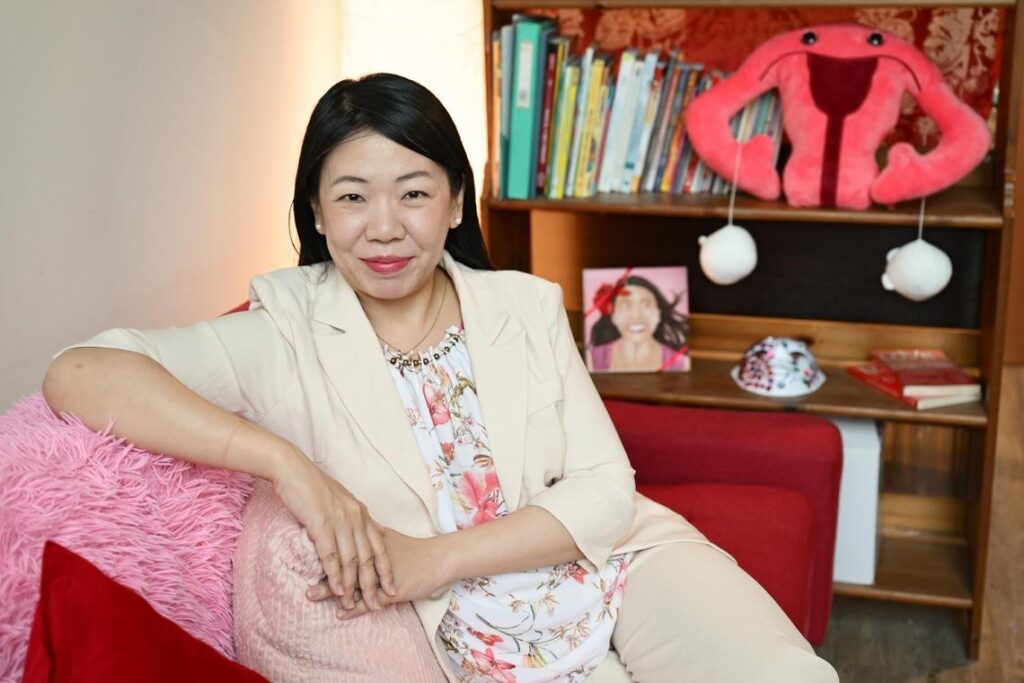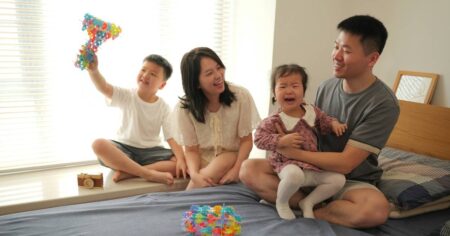SINGAPORE – When Aisyah (not her real name), 30, could not consummate her marriage in 2022, she and her husband knew that “something was wrong”.
They searched online and found out about vaginismus, a condition in which the vagina tightens involuntarily, preventing penetration.
Thinking it could be psychological, the couple sought help at a public hospital. Aisyah tried dilator therapy, which involves using medical tools to help stretch vaginal tissue. She also learnt to desensitise her feelings of fear around sex, which was a taboo topic growing up.
The couple was promptly discharged after they managed penetration once.
She and her husband, 31, later visited a pelvic floor physiotherapist and a sexual health counsellor, without success.
“One-and-a-half years into the journey, we didn’t know why it was still so difficult to have sexual intercourse. Nobody had the right answers,” says Aisyah, who works in healthcare.
She tried starting conversations about sexual health with her friends of different races and faiths, but they were too shy to open up.
“When I did speak up about it to my friends, I realised that some of them might have had experiences with vaginismus but they didn’t know they were going through it,” she adds.
While sex may seem like an instinctive act, Aisyah’s challenges are more common than one might think, with many women facing difficulties raising such issues with doctors and healthcare professionals.
Among women of reproductive age in Singapore, more than half (54 per cent) had poor sexual function, according to a 2024 study by KK Women’s and Children’s Hospital (KKH) that polled 787 women aged 21 to 45 online.
These included challenges with desire, arousal, lubrication, orgasm, satisfaction and pain.
A meta analysis of global studies in 2016 found that 41 per cent of reproductive-age women worldwide suffer from female sexual dysfunction, says Dr Elaine Quah, a senior research fellow in KKH’s division of obstetrics and gynaecology.
The KKH survey, Asia’s first multi-ethnic study of women of reproductive age, also found that almost six in 10 (57 per cent) of the respondents were not aware of the symptoms of female sexual health issues.
While the study did not focus on why women had such challenges and allowed respondents to remain anonymous, global studies show that poor female sexual function can stem from physiological issues such as chronic illness or endometriosis; psychological ones like depression and anxiety; and social causes such as stress and relationship issues, says Dr Jean-Jasmin Lee. She is a consultant in KKH’s Family Medicine Service.
Sociocultural elements such as cultural norms and values, religious beliefs and practices, and social attitudes towards sexuality also play a big role in female sexual function, she adds.
PHOTO: KK Women’s and Children’s Hospital
Vaginismus is the top condition that KK Women’s Health and Wellness Centre’s sexual health clinic sees. Nine in 10 patients are diagnosed with it, and most of them are aged 30 to 39. The hospital saw a threefold increase in vaginismus cases from 2017 to 2024.
Most of the women (91 per cent) polled in the 2024 survey also expected healthcare professionals to initiate discussion of sexual health issues where appropriate. They did not broach the topic on their own.
Yet, only about one in 10 healthcare professionals felt confident in diagnosing or managing such issues, a KKH survey of 477 healthcare professionals who treat women of reproductive age in 2024 found.
To address this disconnect, the KKH-led Maternal and Child Health Research Institute launched Singapore’s first guidelines on sexual health for women of reproductive age on March 28, 2025. The institute, which launched in 2021 to transform national health, oversees the development of guidelines on women’s and children’s health issues.
The guidelines, which primarily target healthcare professionals, include advice like recognising that sexual health is integral to overall health, using evidence-based tools to assess female sexual dysfunction and managing sexual health before, during and after pregnancy, as well as when pregnancy is not considered.
They also acknowledge the special considerations of victims of trauma, LGBTQ individuals and cancer survivors.
“This new set of guidelines plays a significant role in fertility and reproductive health, which is important when trying to conceive, during pregnancy and after childbirth,” says Dr Tan Tse Yeun, a senior consultant in KKH’s department of reproductive medicine and co-chairperson with Dr Lee on the sexual health guidelines.
Women can make use of the guidelines — available online at str.sg/pVWV — as a discussion point with their doctors and other healthcare professionals.
Dr S. Suraj Kumar, a family physician, says that while his female patients usually prefer to see a female doctor for sexual issues, the guidelines are timely and will help doctors in their approach to such situations as well as correct misconceptions.
For instance, he was not aware that women often wait for their doctor to initiate conversations about sexual health, which is something that will be useful in his practice.
Sexual wellness landscape changing
While sex still remains a taboo topic in many circles, Singapore has seen an awakening in the sexual wellness scene in the past decade.
Sexual wellness clinics in the past dealt mainly with the clinical aspects of sexually transmitted diseases. But now, clinics such as InSync Medical and Reiwa Health cater to the holistic sexual health of women and men.
Sexologist Martha Tara Lee, the first Singaporean to obtain a doctorate in human sexuality from the Institute for Advanced Study of Human Sexuality in California, recalls how far sexual wellness has evolved since she started her practice, Eros Coaching, 16 years ago in 2009.
“I encountered people and organisations who discriminated against me, made fun of my work and even laughed in my face. I’ve also faced my share of sexualised comments, objectification and harassment,” says Dr Lee, who was driven by the silence, shame and misinformation she saw among her female friends and in society.
Her clients, who range in age from their 20s to mid-50s, often see her for unconsummated marriages, vaginismus and mismatched libido.
“Many of my clients say they didn’t even have the language to describe what they were feeling, let alone ask for help. They grew up in environments where sex was never spoken about or, worse, framed in fear and shame,” Dr Lee says.
“While younger women are generally more open and curious, thanks to global exposure via social media and evolving norms, the taboo around sex hasn’t been lifted entirely. Many still whisper their concerns, even when they intellectually know it’s okay to ask. The silence is not just generational, but systemic.”
She appreciates the sexual wellness guidelines’ holistic lens, and hopes for more comprehensive sex education covering topics like relationship skills and consent, as well as steps to normalise the spectrum of human sexuality and nurture communication and emotion skills among Singaporeans.
Dr Jessherin Sidhu started InSync Medical in 2017, partly because of her own experience with vaginismus two decades ago, which she resolved by educating herself, as there were few medical resources then.
She also realised that her previous job in a clinic specialising in sexually transmitted infections did not address the myriad aspects of women’s sexual health.
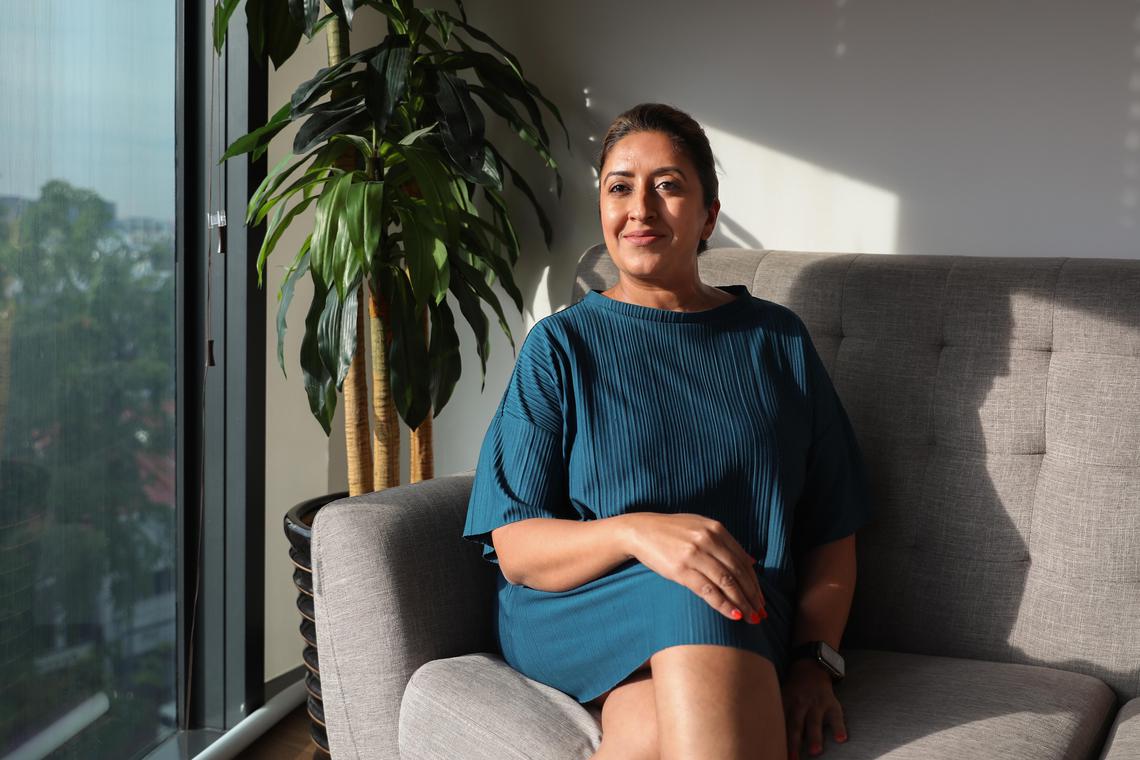
PHOTO: The Straits Times
While vaginismus is still a common concern among her patients in their 20s and 30s who want to be able to have sex and, sometimes, conceive, she has also observed more of such patients seeking help earlier.
“We are seeing fewer women coming in at the brink of breakage of their relationships. Now, we’re seeing women present a lot earlier, within months of a relationship or a marriage,” she says.
Married women unable to have sex may feel a sense of shame because they have not fulfilled what they perceive as their marital duty, which can affect the power dynamics of their relationship when they give in to their spouse in other aspects of life because they feel guilty, Dr Sidhu adds.
“Each and every one of us as women would have experienced some sexual concern at some point in our life. For some of us, it turns into a dysfunction and affects how we feel about ourselves. It affects the relationship,” says Dr Sidhu, who spoke at a recent series of events organised by sexual wellness company Lelo and The Standard, a Singapore hotel.
In one of the more extreme cases of vaginismus she has seen, a woman had to be sedated before undergoing in-vitro fertilisation (IVF) implantation. The patient was eventually able to undergo vaginal medical procedures without general anaesthesia, bore a child via IVF and is now working towards ridding herself of the shame and guilt surrounding sex.
Aisyah, who was successfully treated by Dr Sidhu in late 2024, using pelvic floor myofascial release, done through the vagina, says being able to have regular sexual intercourse with her husband was “very liberating”.
“I wanted a sense of agency over sexual pleasure and to be able to enjoy the process, because I think it’s an intimate act that should be enjoyed by both the man and the woman,” she says, adding that her husband’s unconditional support kept their relationship going.
More than a bedroom issue
Sexual dysfunction issues are not just a problem in the bedroom, but they also have national impact, say experts.
“With the declining birth rate, I hope that the government can see that enhancing women’s sexual health is an area that needs to be addressed urgently,” says Dr Angela Tan, medical director of Reiwa Health, an integrated sexual wellness centre that offers physiotherapy and intimacy coaching in addition to medical treatment.
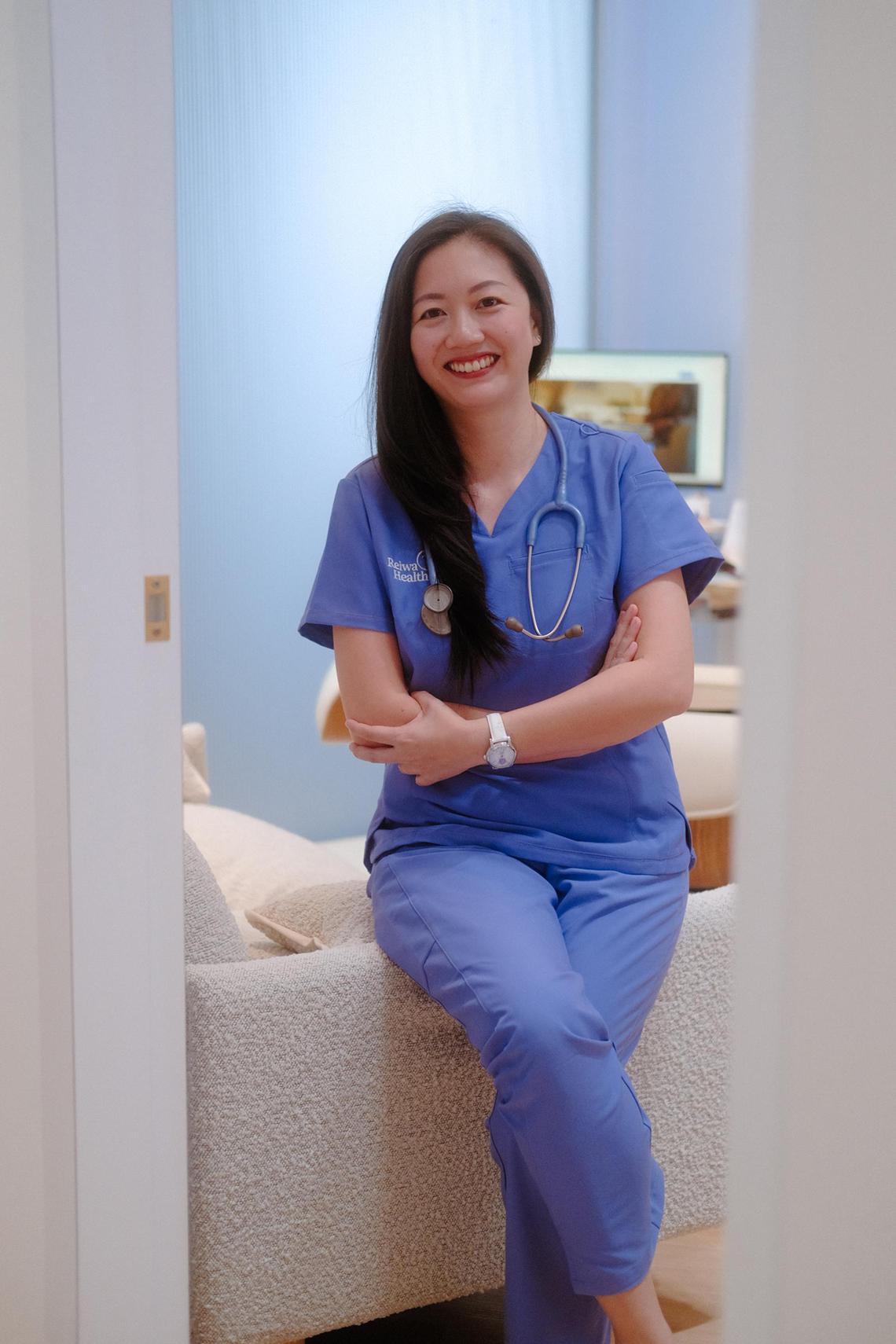
She singles out one particular group that is often overlooked — parents with one or two young children.
“They had a decent sex life prior to kids, but the drop in sex was significant after kids, and they did not manage to figure out what caused it. The wife seems to always be tired and the husband is always asking for sex at the wrong time. Over time, he stops asking, they grow apart and handling household and kids’ logistics becomes their only common thing in life,” says Dr Tan, also an adjunct tutor at the Lee Kong Chian School of Medicine.
“We need to normalise the struggles of young parents and address these issues early, before they turn into dysfunctions. This requires more community and multidisciplinary effort beyond just the gynae visits.”
Many of her patients have experienced a build-up of unresolved concerns over months or years.
“Some of them might have seen a professional who assured them their bodies are fine. Or they might have met professionals who gave generic advice like ‘Have a glass of wine, you will be fine’ or ‘Do more Kegel exercises.’ Some might have spoken to their friends and got a normalisation statement like ‘It’s like that after marriage and kids,'” she says.
“A good number have kept it to themselves, struggled with the concerns, which built up to become relationship stressors, arguments points and resentment over time.”
Certified sex, love and relationship coach Andrea Tan says the sexual wellness guidelines will also help women who have to undergo sexual health checks.
“Many of these checks are invasive, and a lack of comprehensive sex education at a younger age means, potentially, fears around checks, as well as a lack of proper understanding in adulthood around what the care of sexual health looks like and how it can impact other physiological and relational aspects of our lives,” says Tan, who founded Athena Rising Coaching & Consulting in 2018.
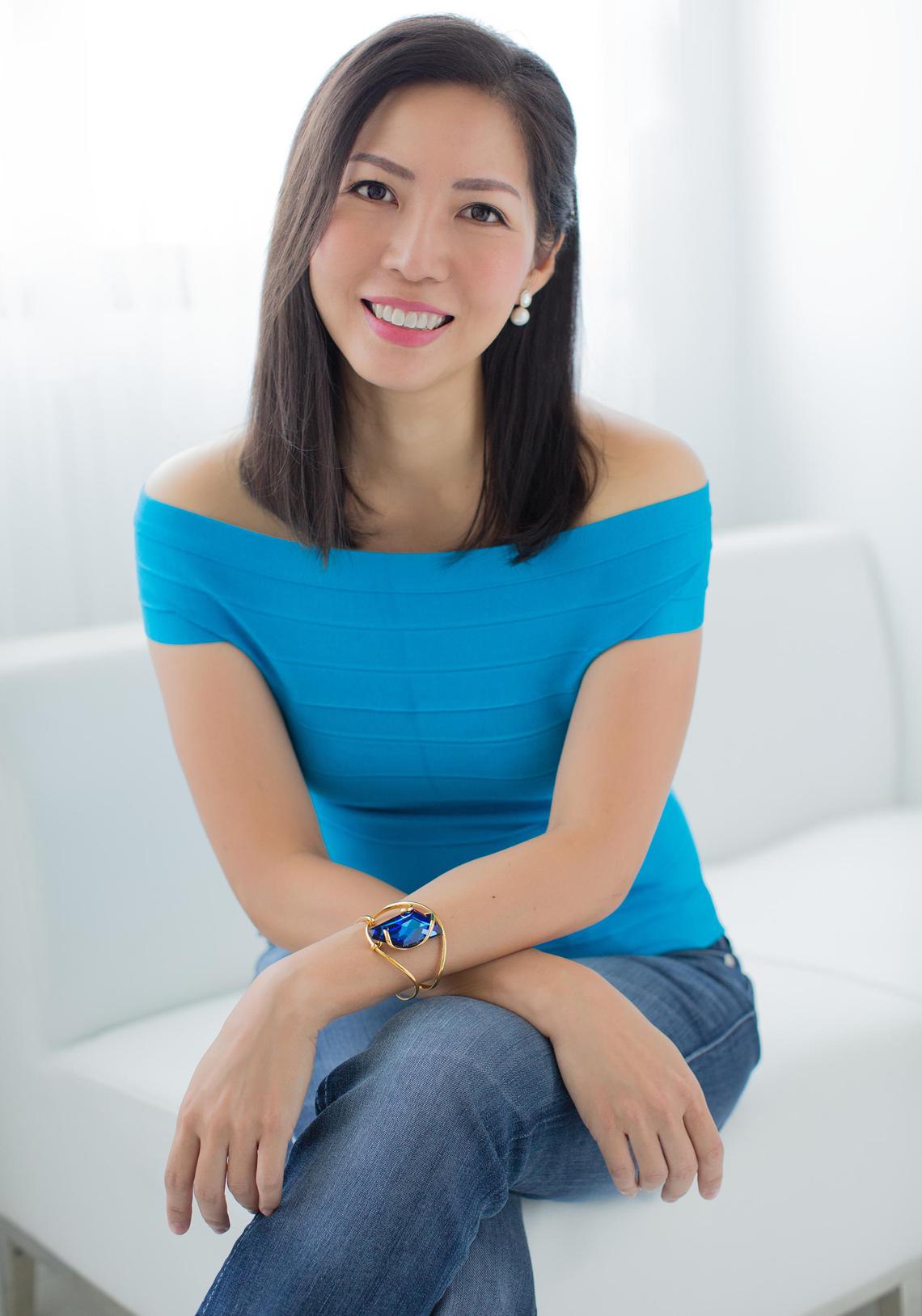
PHOTO: Andrea Tan
Among her success stories is a couple who first saw her for vaginismus. Starting a family was not their top priority, but the wife became pregnant towards the end of their series of sessions.
“It meant a lot to them because they were unable to consummate their marriage for three years and felt the pressure from their parents and friends of the same age who are able to have children,” she says.
Beyond healthcare professionals, women like Noorindah Iskandar, 40, are also advocating for better sexual health awareness. She started a website on love and intimacy called Shy & Curious (shyandcurious.com) in 2020, after her mother died of breast cancer.
Her mother had kept her diagnosis a secret from her family until the final stage of her cancer because she was “ashamed” of her body, says Noorindah, who is single. Then a freelance marketing consultant, she spent a year soul-searching after the incident.
“I wanted to create a safe space to break the silence on taboo topics, where women can gather to share and gain advice and insight from one another’s stories,” says Noorindah, who now specialises in sexual wellness marketing.
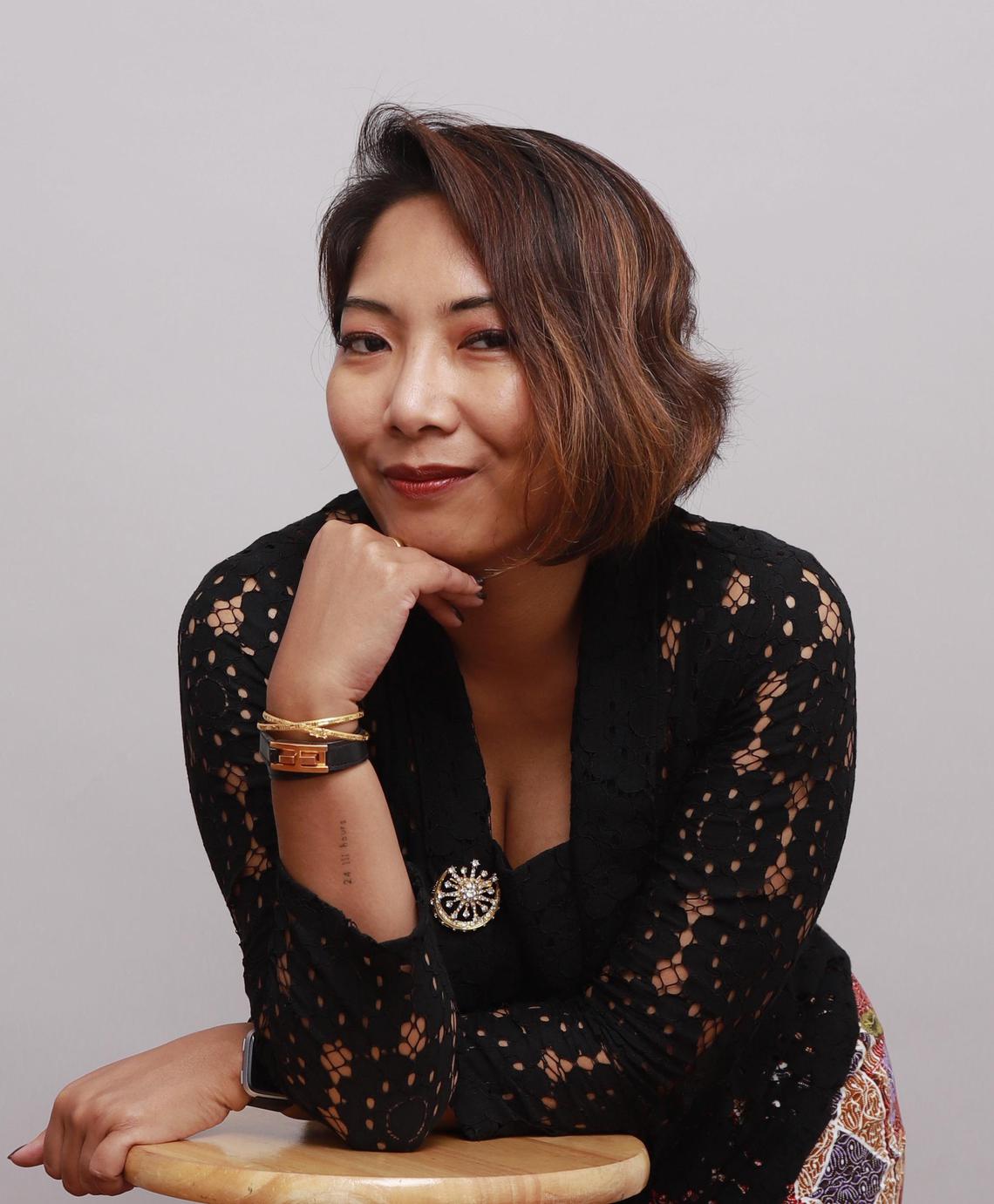
In 2024, she ran classes on dating-related topics with co-working space Crane. In 2025, this evolved into a monthly session, called Bedroom Recipes, on instilling confidence between the sheets.
The first two women-only classes sold out, with 20 attendees a session. She intends to open future sessions to men and collaborate with other sexual health advocates. She also offers a concierge service to help couples choose sexual wellness products.
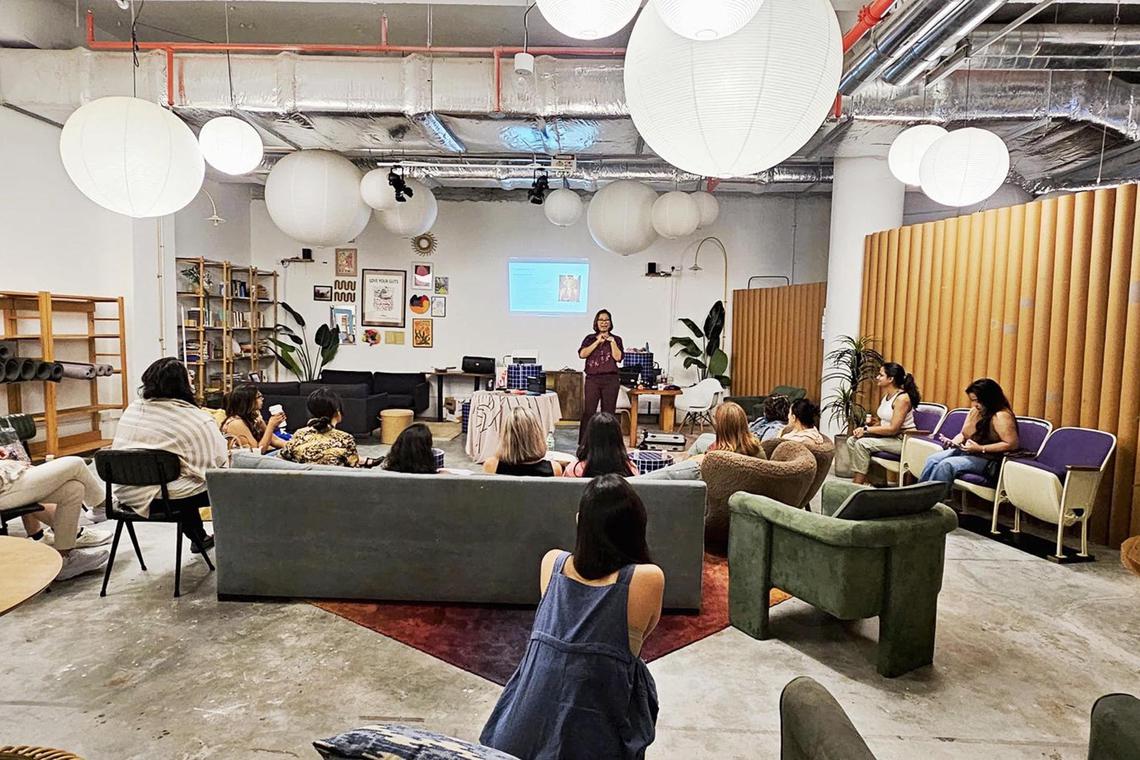
However, sexologist Dr Lee cautions that women should do their research and not blindly follow self-proclaimed sex educators online or offline.
“Sex is not a copyrighted topic – anyone can talk about it and they should. But those who wish to teach or guide others should be clear about their credentials and not misrepresent their expertise,” she says.
Aisyah hopes to see more platforms where women can learn about their bodies and hold honest and open conversations, as she has found it easier to talk about sexual health with friends overseas than those based here.
“Sexuality is personal and some women may not want to seek help, but I feel that sex in a stable relationship should be enjoyed and not feared,” she says.
[[nid:673851]]
This article was first published in The Straits Times. Permission required for reproduction.
Read the full article here







